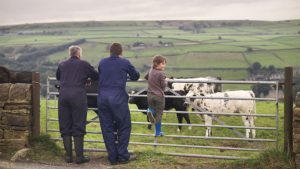- Milton Keynes 01908 660966
- Northampton 01604 828282
Challenging a Will prior to the testator’s death
There have been many reported disputes relating to the inheritance of family farms. Such cases explore a legal doctrine that in itself offers little explanation in its own description: Proprietary Estoppel. Not every day terminology and yet the concept of relying upon a promise and suffering a detriment when it is broken is readily understandable by all. This particular case falls into that category.
The case of Tump Farm and a son excluded
 Tump Farm was owned by David Guest. In the early 1980s, he and his wife, Josephine, left the farm in their Will in equal shares between their eldest son, Andrew, and their youngest son. A monetary legacy was left to their daughter which was equivalent to one-fifth of the net value of the couple’s residuary estate.
Tump Farm was owned by David Guest. In the early 1980s, he and his wife, Josephine, left the farm in their Will in equal shares between their eldest son, Andrew, and their youngest son. A monetary legacy was left to their daughter which was equivalent to one-fifth of the net value of the couple’s residuary estate.
In or around 2015, Andrew left the farm. He had worked there from 1982 and lived in a cottage within the farm grounds with his family until 2017. Relationships however soured and this led to his parents serving a Notice to Quit upon Andrew and his family and removing them from the cottage. The fall out came in part following Andrew’s decision to work elsewhere.
In 2018, David decided to make a new Will. The new Will excluded Andrew entirely and left the farm solely to Andrew’s brother with a lump sum of £120,000 and part of the land to his sister with a right of occupation for Josephine. David explained that his decision to exclude his eldest son was on the basis that he had “lost all Trust in him in” following his departure from the farm.
The challenge of the Will – Proprietary estoppel (a broken promise)
Andrew sought to challenge the Will and whilst ordinarily these types of disputes arise upon death, he brought a claim against his parents for proprietary estoppel – the broken promise upon which he had relied and suffered a detriment.
Andrew’s case was that he had over the years worked on the farm for only a basic wage and relied upon the promise from his parents that one day he would inherit the farm. He stated that he had chosen not to work elsewhere for a much higher wage in reliance upon his parents promise to him and as a result he had suffered a financial detriment and was only paid a basic wage whilst working on the family farm and now was losing his previously promised inheritance.
The Court found in Andrew’s favour. Andrew was awarded a lump sum equated to 50% of the farm and its land and 40% of the rest of the land and buildings on the farm.
The Court found that David had consistently led his eldest son to believe that he would succeed in the farming business. These assurances had continued over many years leading Andrew to rely upon them to his significant financial detriment.
These cases are decided on their own facts. Whilst the principles remain the same, the application to key facts are vital and make witness and supporting evidence even more important. In this particular case, the Judge heard recordings of conversations that had taken place between family members and these played a part in the findings.
For further advice and assistance please contact our Private Client Team on 01604 828282 / 01908 660966 or email info@franklins-sols.co.uk













